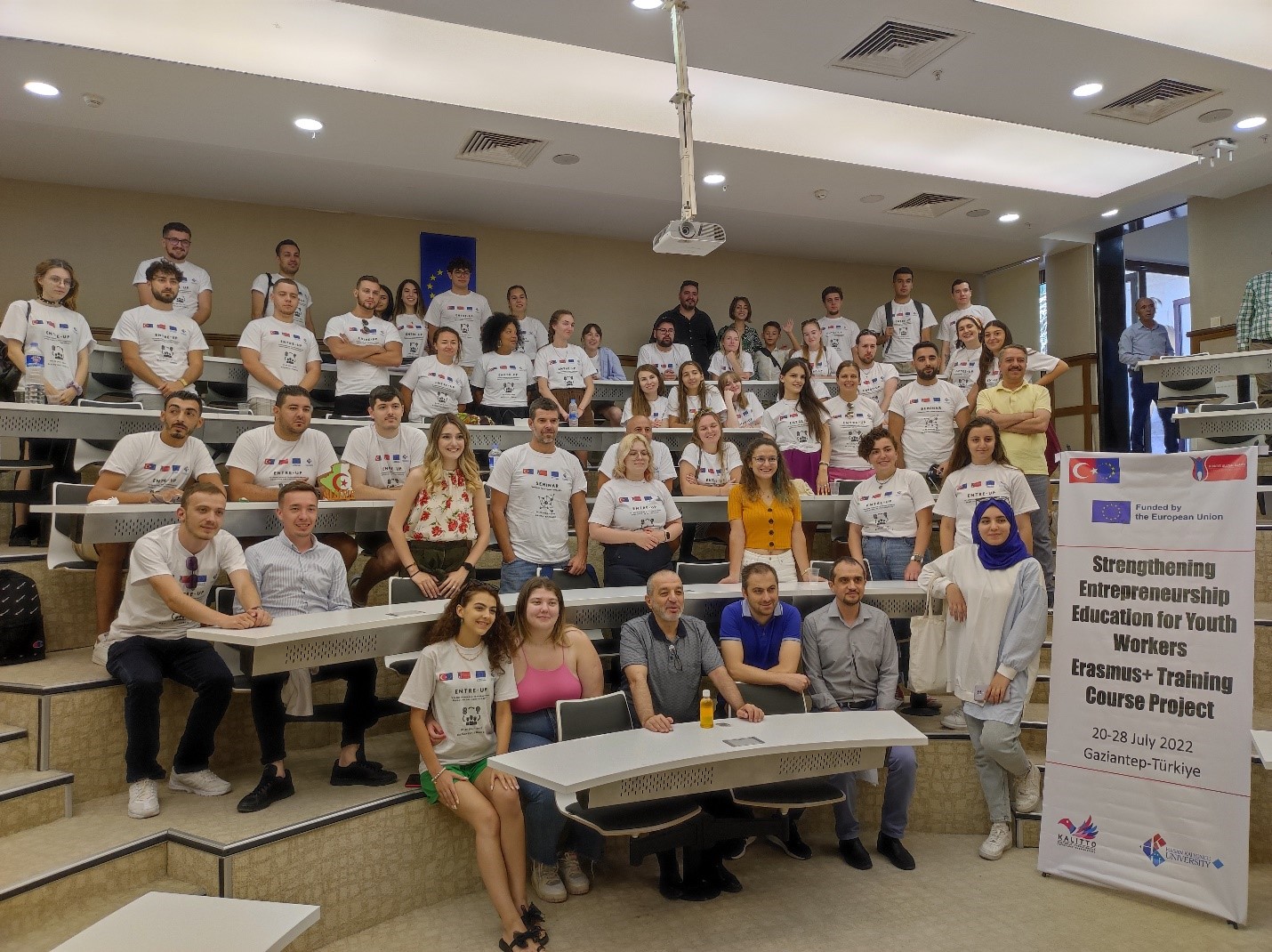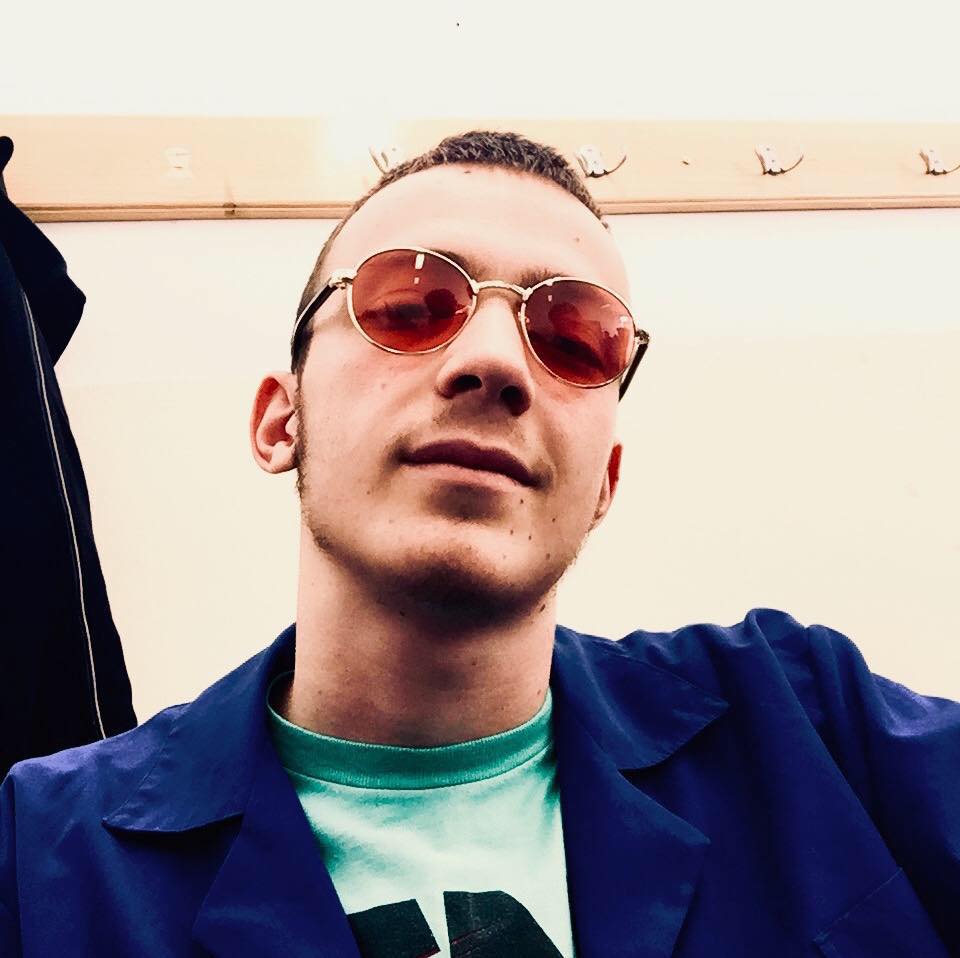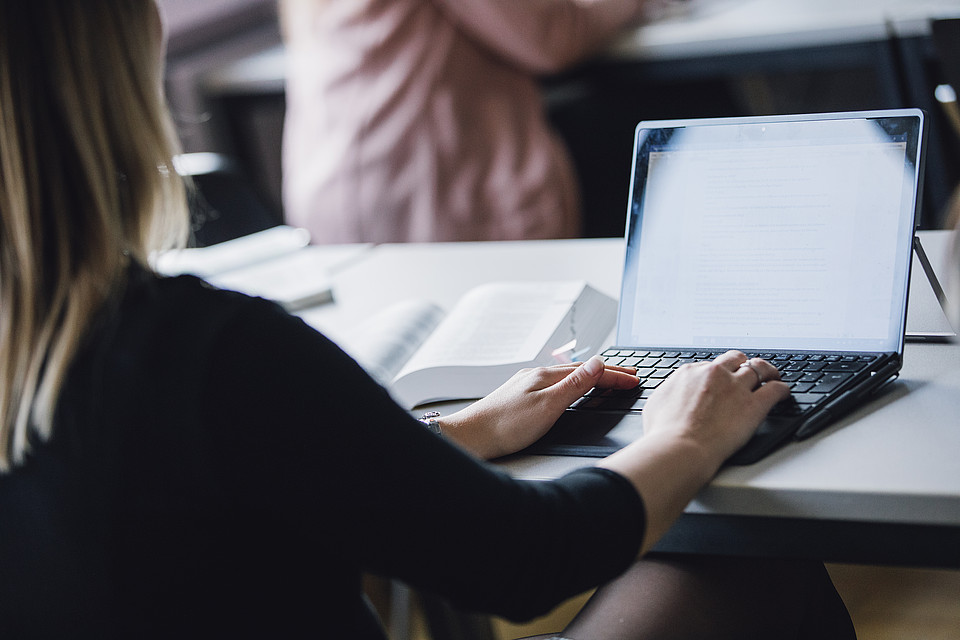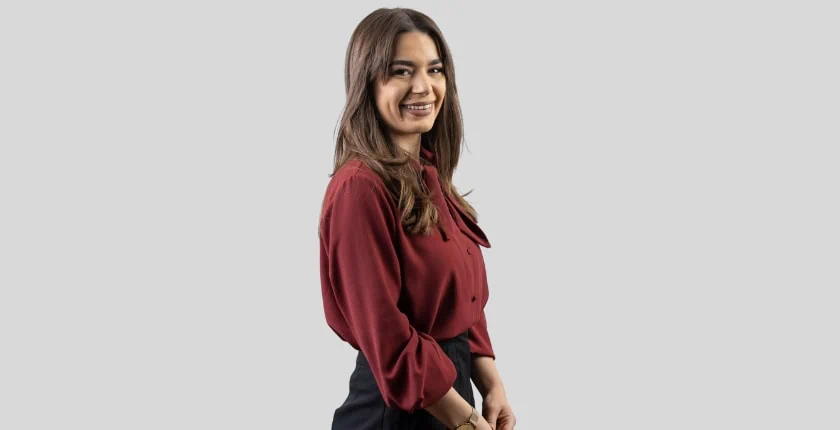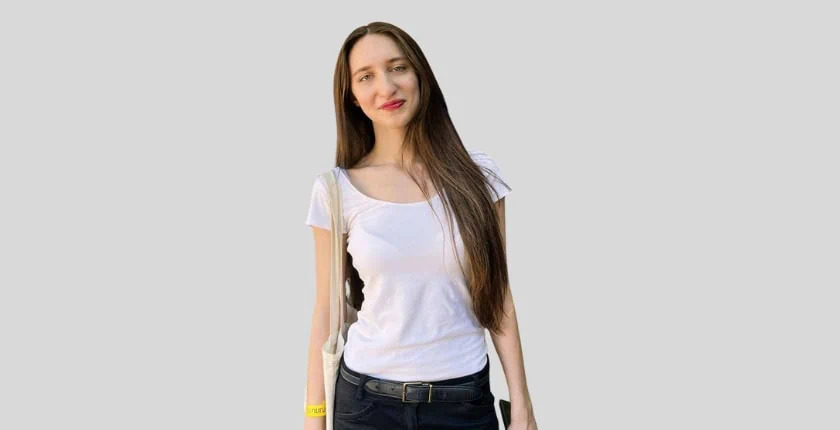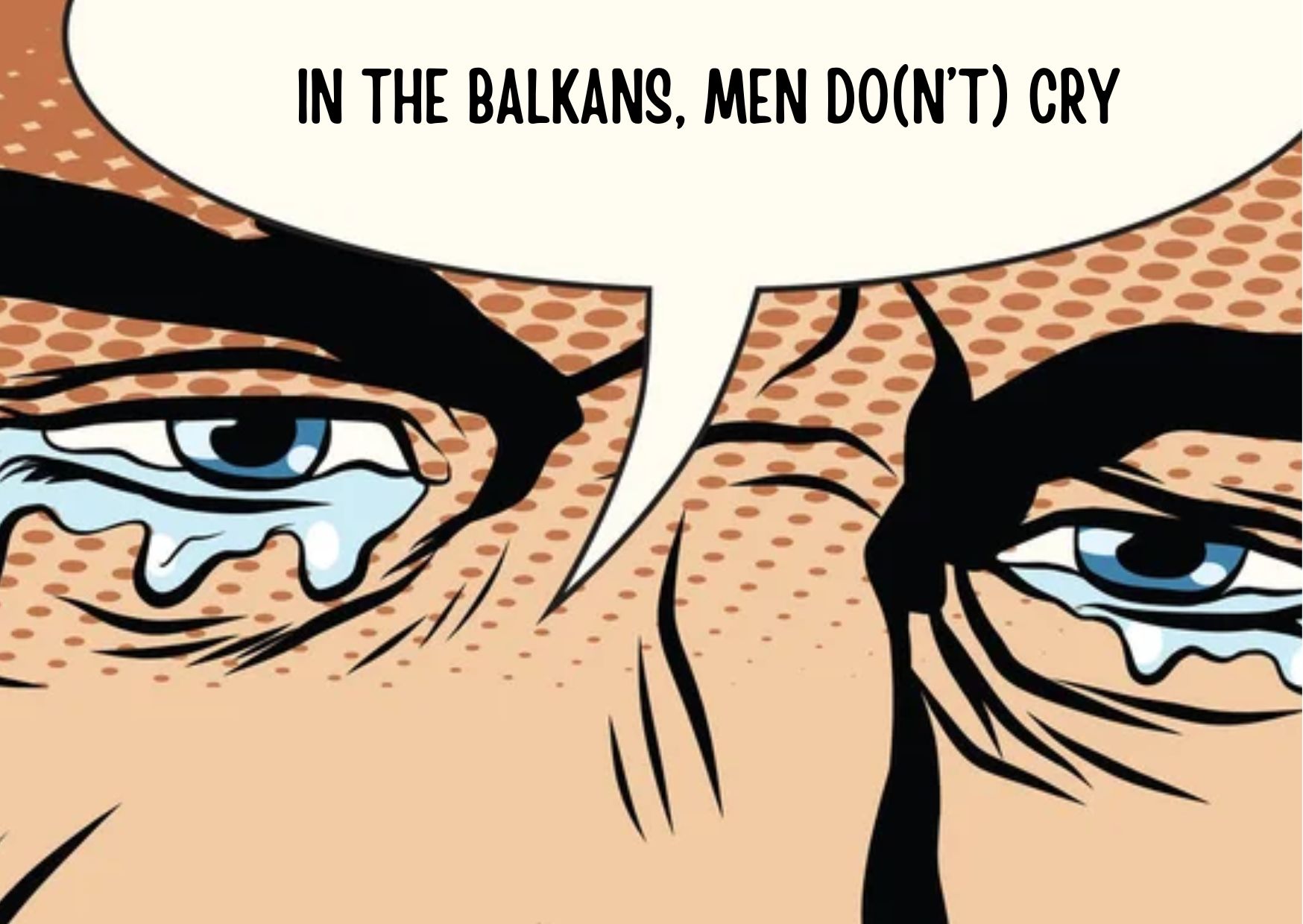In high temperatures, lying in the southeast of Anatolia, the city of Gaziantep gave refreshment to 48 young people who arrived from different countries of Europe, North Africa, the Middle East, and the Caucasus.
As soon as we mention Turkey, we immediately think of Istanbul, Ankara, or other coastal cities. But, in the southeast of Anatolia lies a city that probably has few tourists but contains a lot of history and culture.
Gaziantep is the host city that gathered 48 young people from the region of Europe, North Africa, and the Caucasus.
The "Strengthening Entrepreneurship Education for Youth Workers" Project was the reason why these young people changed at least two planes to reach the city that was once called Antep.
This project was under the umbrella of Erasmus+ and coordinated with Hasan Kalyoncu University in partnership with ILA and a group of other partners. Participants from these regions held workshops to discuss market potential, develop business plans and share their planned impact with each other.
"Foreign city with familiar feeling"
From Pristina to Gaziantep, we had to change two planes. First, we landed in the famous Istanbul and after some wandering around the airport we managed to find the gate that would take us to our destination, Gaziantep.
We arrived at the Gaziantep airport, took the Havas public bus, and with a deep sense of confidence, headed to the hotel address. The driver did not speak English, but with great diligence and without hesitation drove us to the front of the hotel.
At the earliest moment that we arrived at the city; big steam of heat fell on our heads.
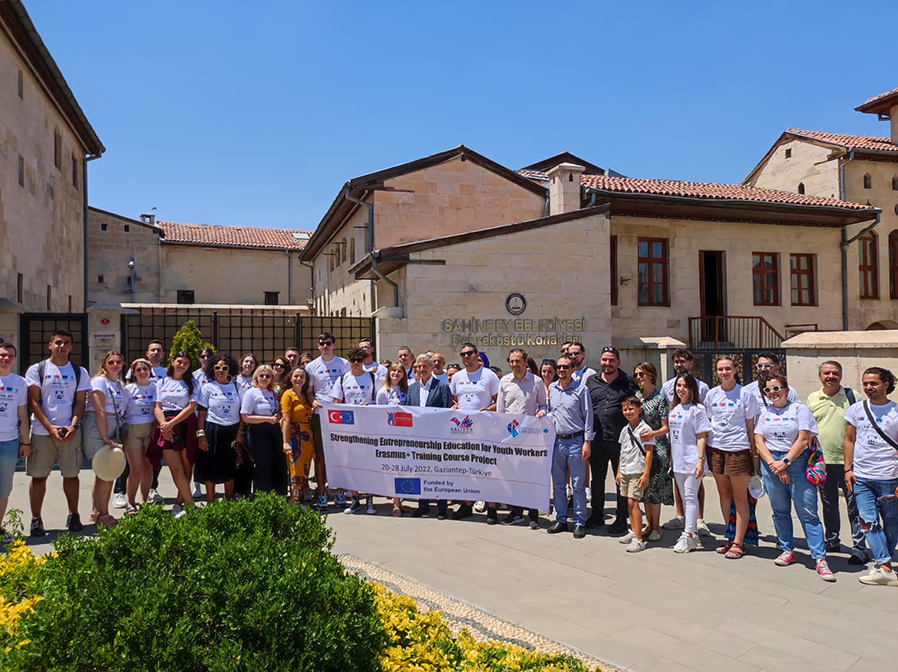
(Participants in the city of Gaziantep)
There weren't many people around, and those that were could be seen walking slowly. Although at first everything felt foreign, after a while it started to feel familiar.
The hospitality, the conservatism, the collectivism, and that slow feeling that the city exuded made us think that we were just in another city in the Western Balkans.
The participants were arriving at the hotel, bringing with them a wide range of cultures, energies, experiences, and emotions.
Intercultural communication is a symbolic process that encompasses a wide range of meanings. Globalism appears to be gaining traction as we are all similar in some ways, but it is the small cultural differences that distinguish us, which only adds to the intrigue of meeting and getting to know one another.
"City of contrasts"
The desire to know new stories and new people was what prompted Angelica from Italy to come to Gaziantep.
“Truth be told, I came here more because I had never been to Turkey than the program itself." - she told us honestly during the interview. Discussions with her about women's rights, LGBTQ+ rights, and other marginalized groups relieved the tiredness of long evening walks.
She did not hesitate to discuss the political situation in Italy, but she also did not stop inquiring about the political and social situations in the other young participants' countries. It was exactly as she stated at the start of the interview: “I’m doing this type of training first because I want to know Turkey in which I never have been before and because I want to get to know new cultures, new people and new stories.”
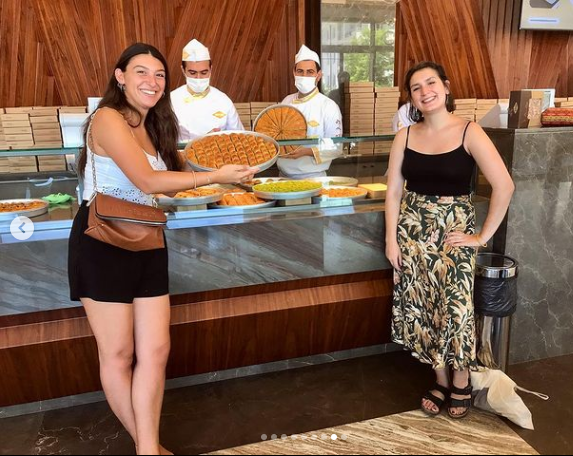
(Angelica Gimbo & Anna Nardone trying Gaziantep’s Baklava)
Angelica stayed in Gaziantep for eight days and in Istanbul for two days. She had enough time to perform a quick observer analysis that identified two different contrasts.
The first contrast was between Istanbul and Gaziantep, while the second was within the city.
“I’ve spent two days in Istanbul, and I could see the differences in contrast between a big city that would seem like a capital even though it is not and Gaziantep, which is, let's say, not so big but is very local. So, I was impressed to find the welcoming attitude of the Turkish people in every situation and every context that we could get into, and very high buildings that were in contrast with some ruins that were just in the center of the street. So, you could close your eyes
to the destructive valley and on the other side you would see and have those magnificent buildings," explained Angelica.
The conversation with her and her friend Anna was mostly filled with laughter, especially when we improvised a mini-Italian language course.
Angelica made me laugh and critiqued me at the same time. She urged me to engage in more conversation with the locals in Gaziantep because, in her opinion, doing so helps you overcome whatever prejudices and stereotypes you might have. As a result, she is grateful for the city's culture and friendliness.
"There were a lot of insights from the cultures and these contributed to deconstructing some bias that unfortunately I have but I’m trying to deconstruct and also these mistakes and stereotypes that I thought I did not have but I discovered that I had and so these really contributed to opening my mind and expanding my curiosity to travel around and get to know people completely different from my country," added Angelica.
“We can change people’s stereotypes”
From the shores of the Italian Mediterranean, we pass to a country that also has access to the Mediterranean Sea.
Jamila Naboulsi, a kickboxing champion was the perfect Moroccan delegate. Did you know that Moroccans can show you how much they love you just by teapot?
The higher they raise the teapot while serving Atay tea, the more they love you. Jamila Naboulsi and Sami El Abdoui taught us this and many other things about Morocco.
The interview with Jamila was so enjoyable that it began with laughter. She asked to see the questions as soon as we sat down for the interview, and I joked back that a journalist never shows his questions in advance.
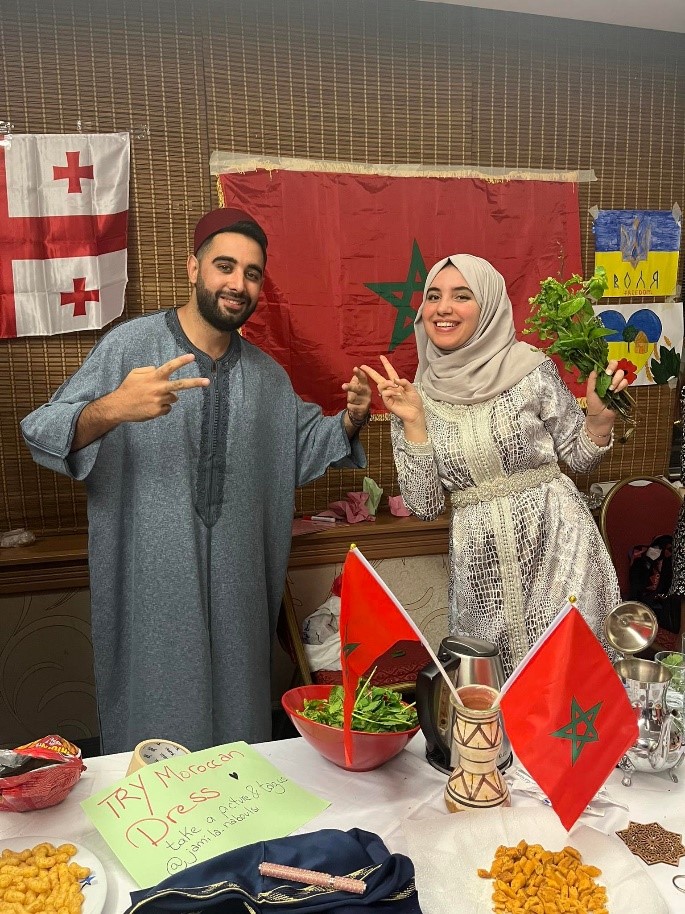
(Jamila Naboulsi and Sami Elabdioui during the cultural night)
With a well-constructed atmosphere of laughter, she tells me that her goal is to answer my questions as concretely as possible. This showed the open, smiling character of a young economist woman with lots of plans for her future.
Jamila was very satisfied with the training, as she studies economics and management and sees entrepreneurship as a topic that young people should be very interested in.
"The participants in this training come from 22 countries, so the idea of entrepreneurship would be different for each country than for another. So, I wanted to see how people treated entrepreneurship, how they would describe it in their countries, and as you know, youth entrepreneurship is one of the things that the world is now talking about and that makes it a worldwide topic, "said Jamila.
Gaziantep is a must-see for Jamila because of its amazing food, baklava, and museums that contain stories you may not have heard before.
Jamila informed us that the North African region is experiencing similar political problems to the Western Balkans, which contributes to the rise of prejudice against people from neighboring countries.
However, according to Jamila, this training, in addition to providing knowledge about various professional issues, allows you to better understand your neighbor's culture and, as a result, change your opinion of them.
“I believe that we can change people’s stereotypes. For example, we have Algeria and Morocco in one program. Normally the political things are very complicated between the two countries but being here you just see how the people that live in both countries are not having problems and it’s just politics, and for the Balkan countries it’s the same thing. So, these programs give us space when we can show love for each other,” explained Jamila.
“The team is everything”
In the hotel, we were divided into rooms with 3 or 4 participants.
Christian Postolache from Moldova, one of our roommates took us on our first tour of the city. He only needed a phone map to point us in the right direction around town.
We occasionally stopped to comment on what we had seen, breaking the conversation with topics about our countries.
We visited a mosque, the park, some big letters marking the name of the city and a shopping mall. We made sure to bother each other with constant stops and photographs as moments like this can`t go uncaptured.
Christian studies wine technology and had no choice but to bring Moldovan wine for cultural nights. It is surprising how the wine survived until the cultural night.
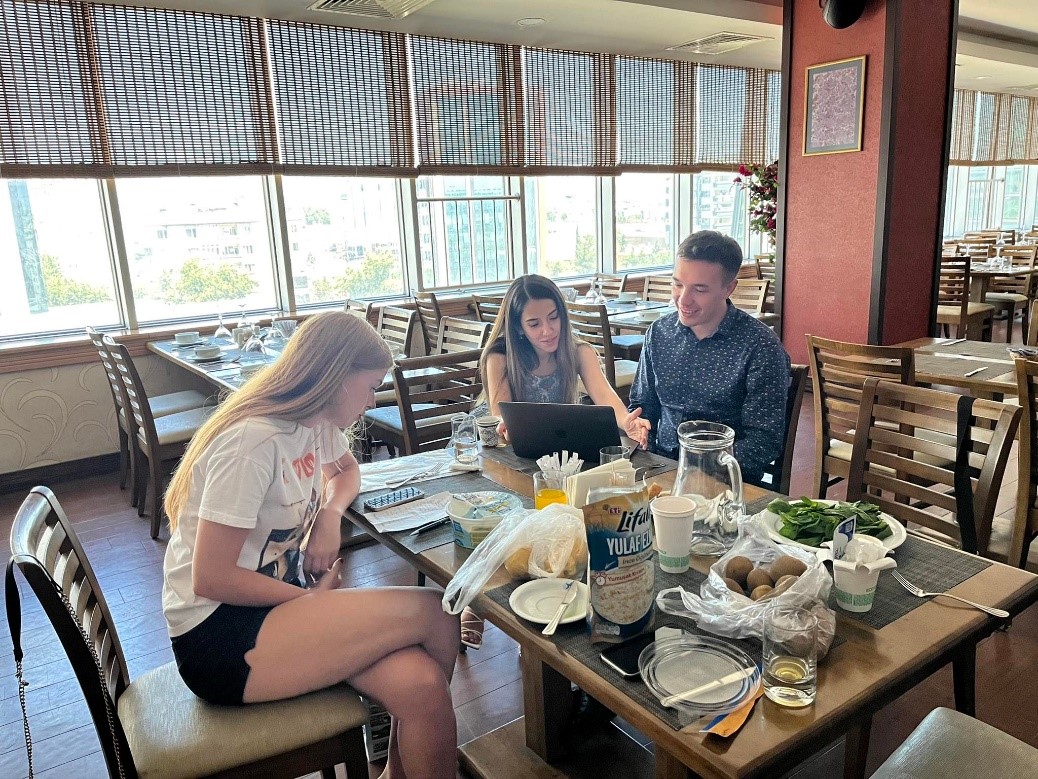
(Christian Postolache preparing for the simulation game)
He chose to follow this training because he sees himself with his own business in the future, so this training was highly beneficial to him.
"I have too many ideas that I would like to share with people. The first main idea is that the team is everything, so if you have a good, connected team, it will be easier to build the company and do something good for the people. And about the future, I’m sure that I will apply the business canvas and models that we learned here, "explained Christian.
Aside from the Turkish wedding and Turkish food, the young man from Moldova was most impressed by Gaziantep's architecture. He describes himself as an energetic extrovert who enjoys meeting new people and learning about different cultures.
"I can say that future projects like this and Erasmus opportunities will lead to strong connections between countries, and who knows, maybe we will meet each other again." ends Christian.
“It is a broadening horizon”
Irla Pirraj from Albania and Selami Gashi from Kosovo* made sure that the Albanian language was not forgotten in this activity.
Irla just finished high school, being one of the youngest and having to endure constant jokes from us. At the cultural night, it was Irla who helped us dance the Shota dance, a traditional dance in Kosovo and Albania.
She stated that she attends these trainings to improve herself and broaden her horizons. She believed that this training would help her to be more oriented in her career and to do good in her community.
“I really want to help my community, but I'm still self-developing, so I don't have a concrete idea yet; this training would help me get started, and I've learned financial analysis, teamwork, and how to analyze a business plan. These things would help me on my path of creating my own business or starting something up to improve something in my community," said Irla.
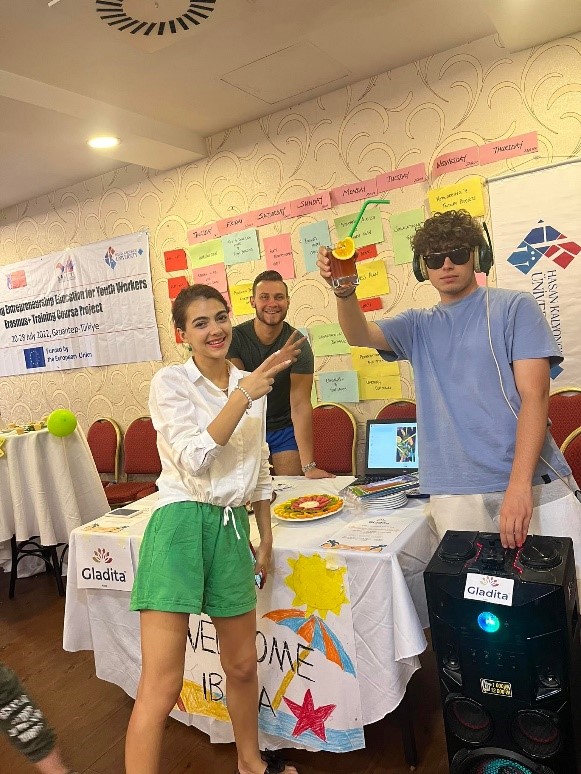
(Irla Piraj during the improvised bazaar)
Irla, like others, values the food and culture of Gaziantep, so she encourages all young people from the Western Balkans to visit the city and participate in Erasmus+ programs.
Same as Irla, Selami Gashi expressed his satisfaction with the culture that surrounds the city and the people of Gaziantep.
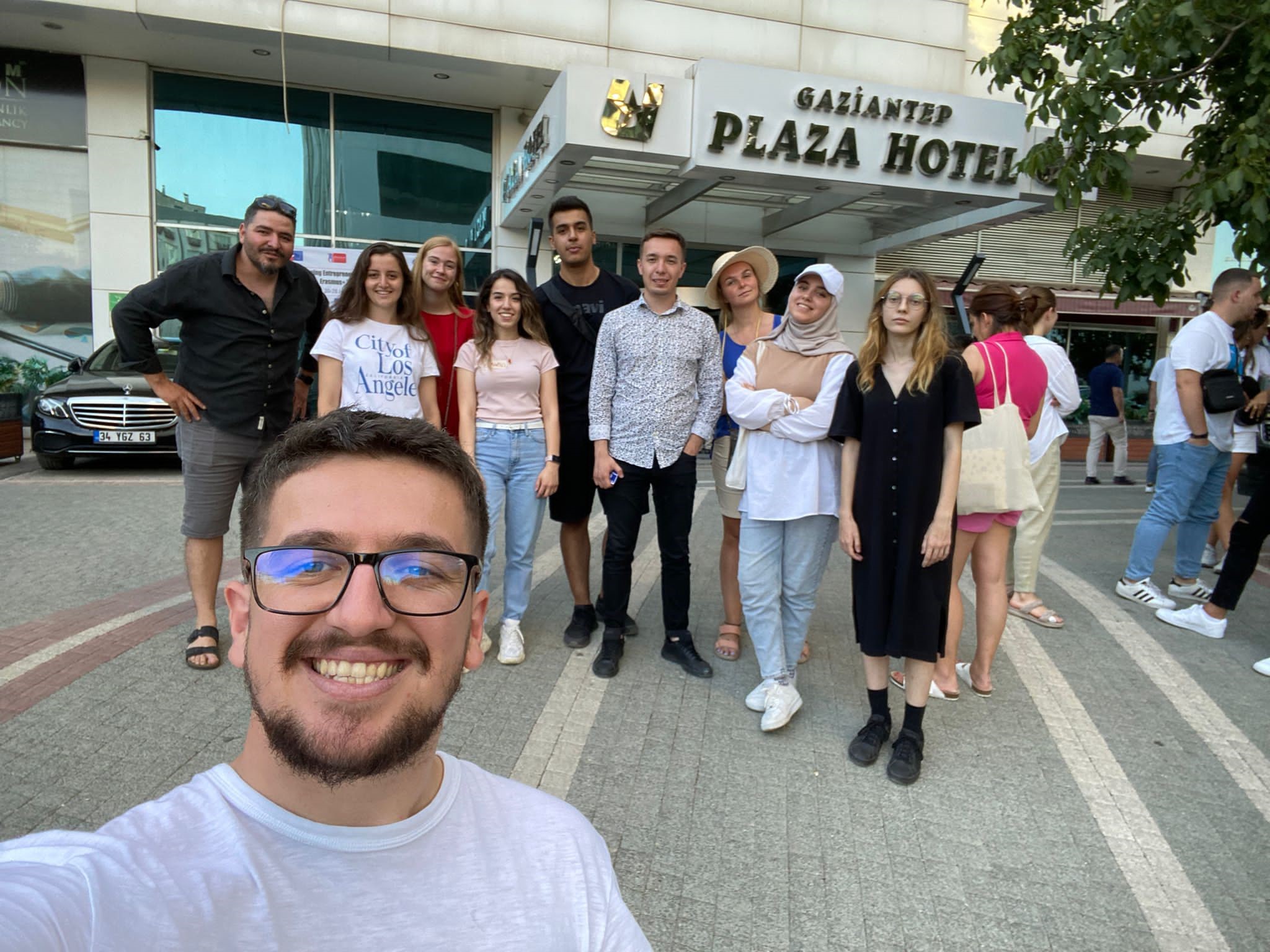
(Selami Gashi and his team during the city hunting game)
Selami is from Kosovo and studies at the master’s level in Banking and Finance, so this training was more or less directly related to the profession he practices.
"I participated in this training for new knowledge about entrepreneurship, but from this training I learned some new analyses, which can be used for new startups that I have in mind." explained Gashi.
“I like to grow in every single aspect of my life… or at least I try”
An amazing dancer and a passionate conversationalist, these are the two words that would probably best describe Miguel Angel from Spain.
With Miguel, we discussed for hours about diplomacy, politics, and the economy.
Something about Miguel made you feel at ease enough to begin a long talk with him. Perhaps it was his superpower that ensured our team's victory in the impromptu training bazaar.
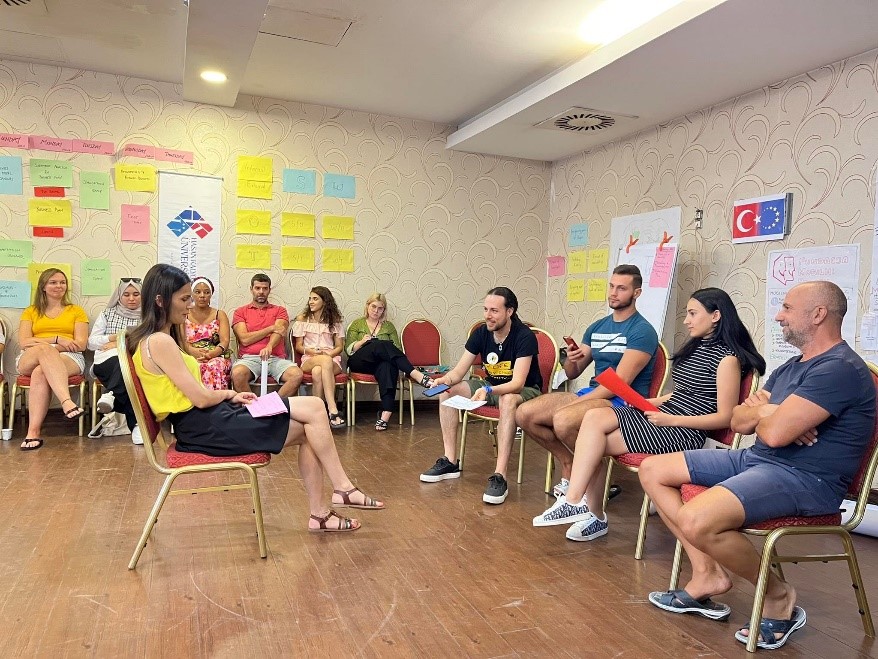
(Miguel Angel and his team during the training)
He studies Law, Political Science, and Public Administration, but he also enjoys challenging himself. Miguel hopes to start his own business in the near future, which motivated him to attend this training.
"I’ve learned a lot of interesting ideas, concepts, theories, resources, mistakes to avoid, etc. And another important thing I learned from the two entrepreneurs who visited us and shared their experience was that... nothing in theory doesn’t really work in real practice. Reality is much harsher and has many more variables than theory. The best way to learn is to be in the real business, through trial and error," explained Miguel.
Like others, he appreciates the culture and traditional food of Gaziantep and advises all young people to learn from such an experience.
"It’s really enriching; you make new friends (in my case, I have new brothers forever), learn a lot of things (theory, practice, culture), it’s very funny, etc. Everything I can say is good words. I wanted to stay another week! "
"Mobility projects can widen their perspective and their way of thinking"
Shevket Yilmaz brought together these 48 young people in Gaziantep. We shared the same name as Shevket, but his name was in the Turkish version and mine in the Albanian one. Shevket Yilmaz is a project specialist at Hasan Kalyoncu University who is primarily responsible for the entity's international project management.
We did the interview in his room, where, despite his busy schedule, he found time to explain the purpose of this project and why they chose Gaziantep as the location.
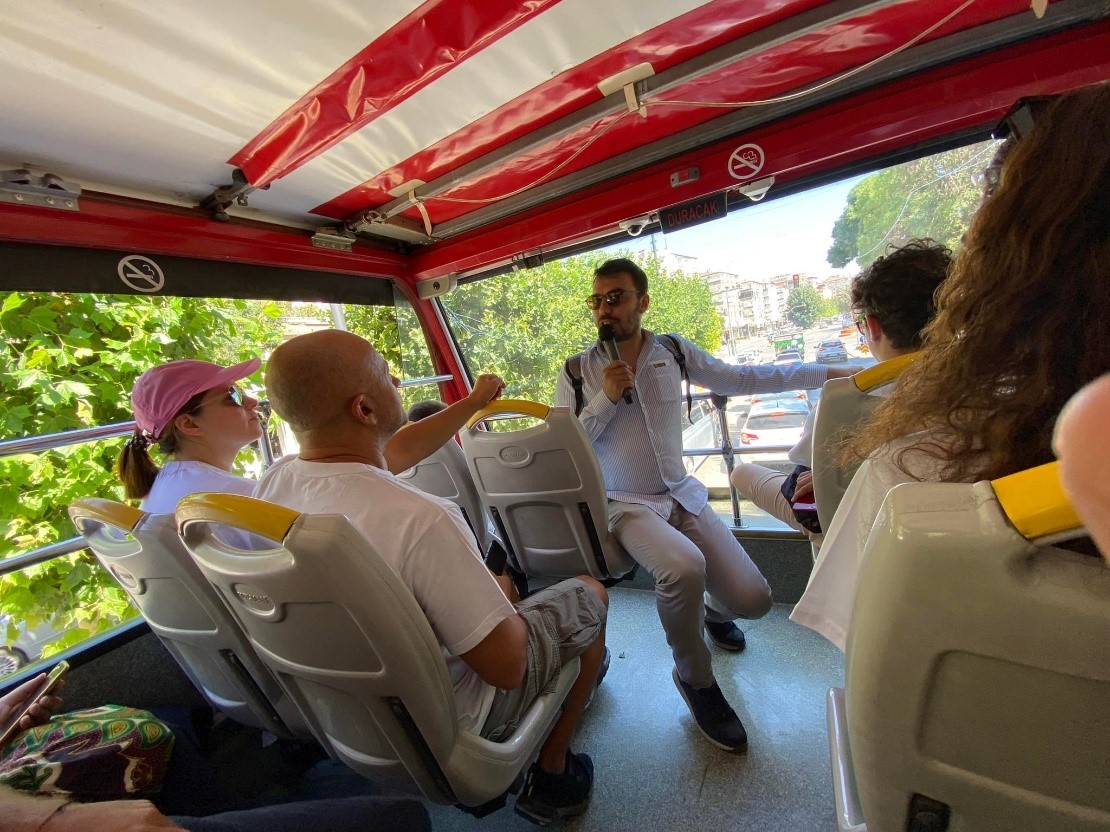
(Shevket Yilmaz during the city tour with participants)
"Gaziantep is one of the most popular and most productive industrial cities in Turkey. If I remember correctly, Gaziantep is the third city in Turkey that is doing the most exports to other countries, so it's a very high profit city. The industry is very developed here and also, because of the technical capacity and human resources capacity, it’s one of the most popular spots for entrepreneurs," explained Yilmas.
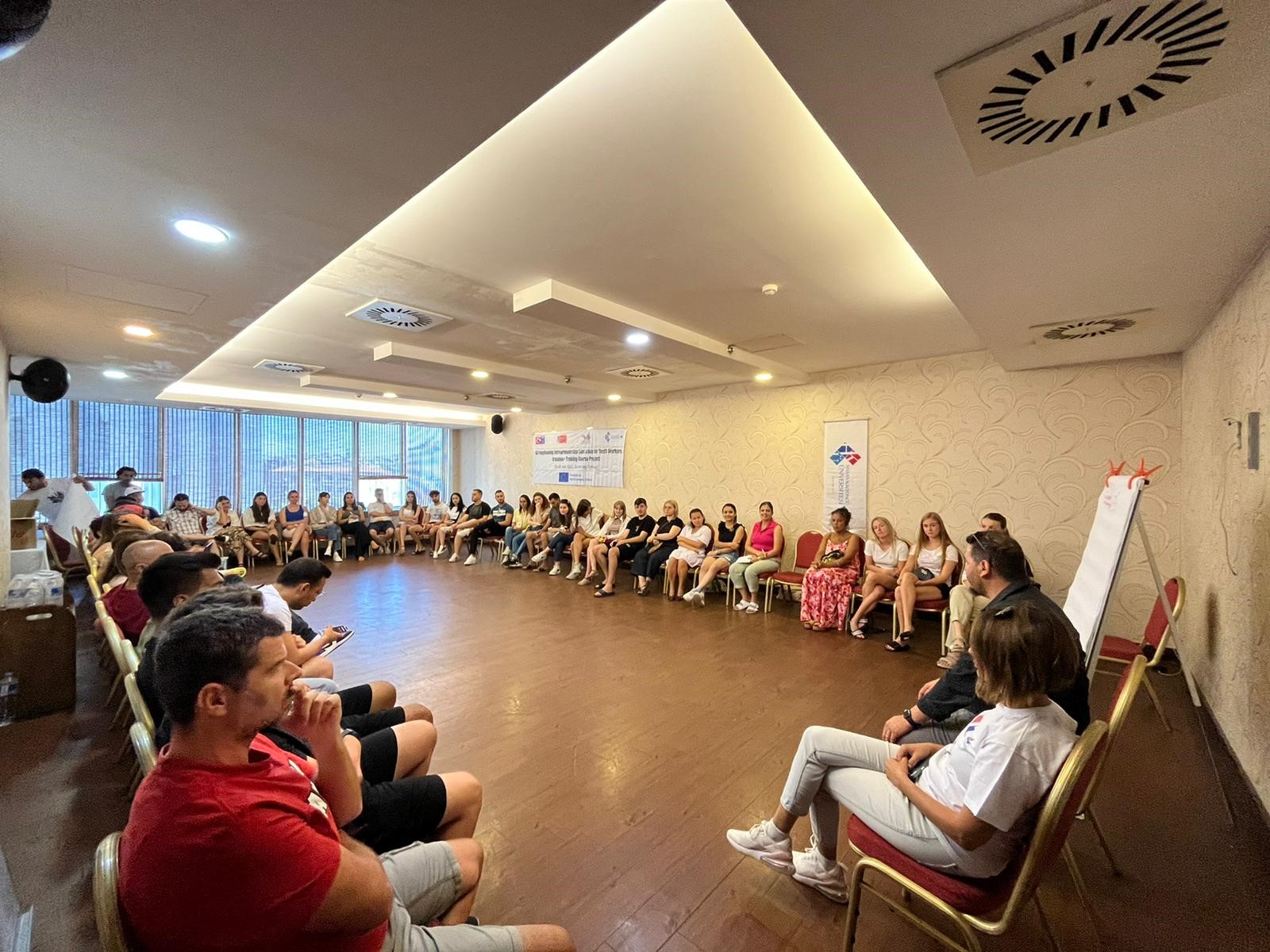
(Participants during the training)
Young people can have many different innovative business ideas, but they frequently lack someone to advise and push them forward. For Shevket, the significance of this project lay in providing an opportunity to fill this void with advice from coaches and participants their age.
"Some of them have already created the structure of their business idea; some of them have created their own business canvas model or business plan, their marketing strategy, human resources, or financial sources. So, I believe in the future we will see some businesses or companies established by our participants," explained Shevket.
In the end, his call goes to the young people of the Western Balkans: "You should definitely join youth organizations and youth mobility projects as well, because you will improve your sense of humor, communication skills, sense of understanding a different culture, and also you will improve yourself."
